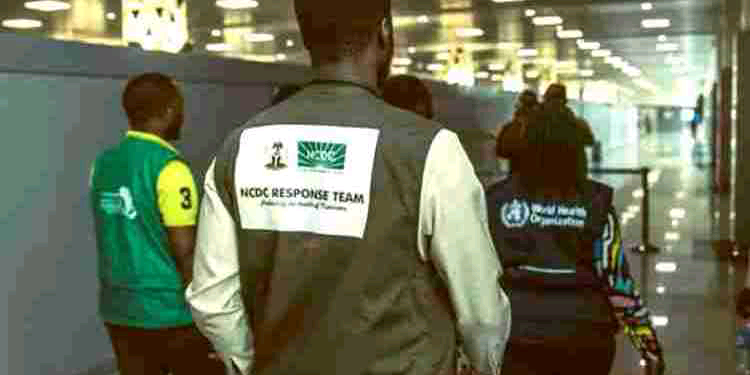NCDC reports 210 new Cholera illnesses, 10 deaths

From July 31 to August 27, the National Center for Disease Control (NCDC) recorded 210 new suspected cases of Cholera infections and 10’suspected’ deaths throughout eight states.
This was revealed by the NCDC in its most recent monthly situation report on cholera, which covered Epidemiological (EP) weeks 31 to 34.
Cholera is a bacterial infection caused by the vibrio cholerae bacterium.
It is most typically found in regions with inadequate sanitation and limited access to clean water. It is primarily spread through contaminated water and food.
Cholera symptoms include severe diarrhea, vomiting, and dehydration. It is potentially fatal if left untreated. According to the World Health Organization, this is correct.
According to the NCDC, suspected cases and deaths from Cholera dropped by 63% and 67%, respectively, in 2023 compared to what was recorded during Epidemiological Week 34 in 2022.
According to the report, on August 27, 2023, the country recorded 84 suspected deaths and 2,860 suspected cases across 25 states, for a Case Fatality Ratio (CFR) of 2.9 percent.
“Cumulatively, it shows that six states: Cross River (718 cases), Katsina (302 cases), Bayelsa (265 cases), Ebonyi (227 cases), Niger (136 cases) and Abia (118 cases) account for 62 per cent of the suspected cases in 2023,” it stated.
According to the NCDC, out of the eight states that reported 210 suspected cases, Zamfara in the northwest led the way with 190 instances, followed by Kano and Bayelsa with seven and five cases, respectively.
In addition, Bauchi, Niger, and Borno states each reported two cases, with Gombe and Adamawa reporting a single case each.
According to the organization, 21 Cholera Rapid Diagnostic Tests (RDT) were performed, with nine positive results (Zamfara – 8 and Bayelsa – 1), and 26 stool culture tests yielded three positive results.
According to the NCDC, the national multi-sectoral Cholera TWG is still monitoring response across states.
According to NAN, numerous actions can be taken to prevent cholera, including assuring access to clean and safe drinking water.
If the source of the water is suspect, it can be disinfected by boiling, using water disinfection tablets, or by using a water filter.
